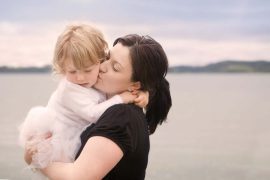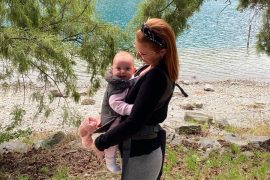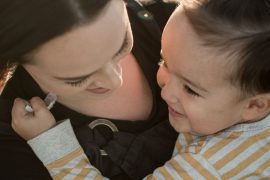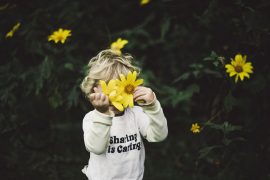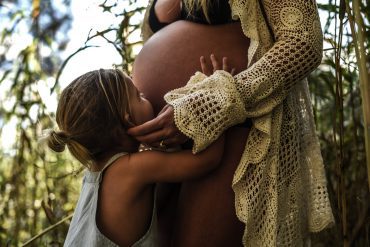5. Don’t take their behaviour personally
When our children are struggling, they might show us through their behaviour – tell us that they hate us, or even throw a tantrum, hit or kick us. They simply may not have the words to describe the strength of their feelings. Our role is to help them understand themselves, so they will have the ability to communicate respectfully in the future. Believing that our children are doing something to deliberately hurt, annoy or cause us pain will cause us to react negatively to our child – even punish them. When we think our children are ‘pressing our buttons’ or ‘ignoring us’, we react to our assumptions behind their behaviour. Rather than thinking they are acting with malicious intent, realise that children are behaving simply to meet a need. It’s not in a child’s interests to see their parents in emotional or physical pain.
6. Parents are human – we cannot be perfect; Children are human – they cannot be perfect
If we accept ourselves as imperfect human beings who have their moments, good and bad days, then we’ll let children see us as human (imperfect, struggling and learning) just like them. When we are authentic and don’t take ourselves too seriously, then this means we can apologise, say ‘sorry’ and seek to repair our relationship. By understanding ourselves this way, we take the pressure off our children and can see that they, too, are imperfect human beings, learning, through trial and error, to fit into this world.
7. Model Positive Behaviours and practice self-care
Children learn a lot by observing their parents. Model the behaviours, values and attitudes you want to see in them. Show kindness, patience and effective conflict resolution in your interactions. Take care of your own physical, emotional and mental well-being. When you are balanced and centred, you’re better equipped to provide nurturing care to your child.
Remember, mindful parenting is an ongoing journey that involves learning, adapting and growing together with your child. It’s about creating a loving and supportive environment where both you and your child can flourish.
If you would like to discuss and explore your own parenting style and discover some practical tips on how to help you feel more confident and mindful, familycoach.co.nz and book a free 15-minute chat.
Lisa is a family therapist and coach who has a special interest in parent-child relationships and runs her own practice from Wanaka. She also teaches mindful parenting workshops and conflict resolution through her work with charities such as the Peace Foundation and Grandparents Raising Grandchildren. Visit her website to find out more about the services she offers. You can also connect with her on Instagram and LinkedIn.

